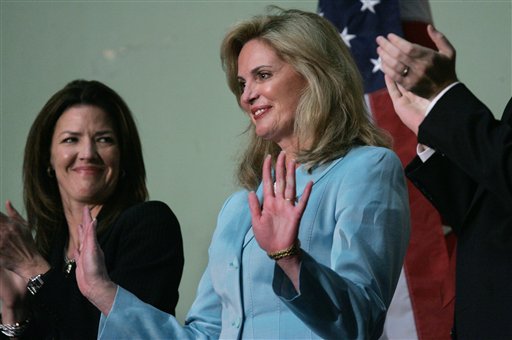Are the Beliefs of a Political Spouse Relevant?
A version of this blog post appeared in Politico on June 1, 2007.
Thirteen years ago, Anne Romney gave a $150 personal donation to Planned Parenthood. Upon the disclosure, her husband, who is now running for president on a staunchly pro-life platform, disclaimed, “Her positions are not terribly relevant to my campaign.”
But are they? Should you consider the views of a spouse when voting for his or her partner?
Undoubtedly, Bill Clinton is integral to Hillary’s campaign. He is, hands down, the best Democratic mind and campaigner today. Of course, the Clintons are an exception, given that one of them occupied the Oval Office for eight years.
What does the Republican front-runner think? Asked if his wife would sit in on cabinet meetings, Rudy Giuliani told Barbara Walters, “If she wanted to. If they were relevant to something that she was interested in. I mean, that would be something that I’d be very, very comfortable with.”
To put the point poetically, recall the scene from Angels in America, where Al Pacino is bragging about his clout. Pacino tells his doctor, I pick up the phone, make a few calls, and you know who’s on the other end? “The president?” “Even better,” Pacino smirks. “His wife.”
Indeed, no one knows the president better than his wife. She’s the first one with him in the morning and the last one with him at night. Do this with someone long enough, and pillow talk is inevitable (even for Tony Soprano). “You know, honey,” Laura Bush admonished George W., “I think it’s time you let Don go” (I’m paraphrasing).
But W. rejected the advice (to fire his now-former former secretary of defense), and it’s worth noting that while the president’s wife, his mother and one of his closest advisers, Secretary of State Condoleezza Rice, are all pro-choice, he remains a committed pro-lifer; among other things, he has reinstated the global gag rule and appointed two, anti-choice judges to the Supreme Court.
As further evidence of spousal independence, consider such strange-bedfellow marriages as Mary Matalin and James Carville (she was a senior adviser to Dick Cheney, he to Bill Clinton) and Maria Shriver and Arnold Schwarzenegger (she’s a lifelong, hereditary Democrat, he’s the Republican governor of California).
Therefore, Romney is right: the views of a significant other aren’t terribly relevant. While it may be comforting to think that a wife is whispering NARAL talking points into her husband’s ear, the hope for a consequent change in policy is probably more hope than actuality. Spousal disagreement surely softens an otherwise inflexible position (hence the phrase “my better half”), and makes the other person aware of the counterarguments, but it’s unlikely to change one’s mind.
Addendum (6/27/08): Amy Sullivan points out additional examples of First Wife spousal disagreement:
From Pat Nixon, who declared “I believe abortion is a personal choice,” to Betty Ford, who praised the Supreme Court’s judgment in Roe as “a great, great decision” to Laura Bush, who on the eve of her husband’s inauguration said she did not think he would appoint justices who would overturn Roe, pro-choice wives have long tried to signal to voters that this particular Republican President would not focus on abortion.

 Comments (1)
Comments (1)
July 9th, 2014
A spouse has the right, like any other citizen, to “lobby” for his/her cause. There is no guarantee that the politician will blindly follow the advice of the spouse. After all, he, or she, wnt to get re-elected